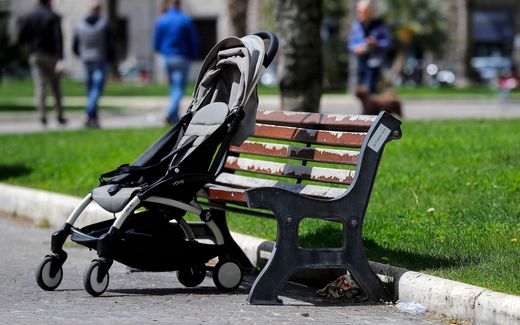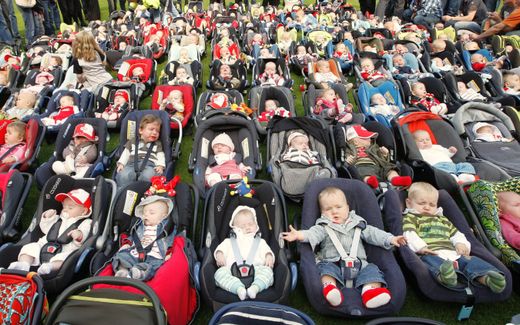Families are disappearing in Italy, and the church must act

Photo Canva.com, EPA Massimo Percossi
Christian Life
When we think of Italian families, many of us imagine a lively scene: parents, grandparents, uncles, cousins, and children all gathered around a lavishly set table having a traditional family meal. However, recent data paints a very different picture.
According to the latest demographic report from ISTAT (Italy’s National Institute of Statistics) from 2024, the most common type of household in Italy is now the single-person family. That’s right—a “family” made up of just one individual.
It is important to note that the term “single-person family” is an improper definition. It is used primarily for statistical purposes to describe individuals living autonomously, detached from other family units, and thus classified as a “family of one”.
Young students, singles, and elderly individuals living alone account for 36.2 per cent of all family structures in the country. Couples without children represent another 20 per cent, while single-parent families make up 10 per cent. Traditional nuclear families—couples living together with their children—now comprise only 29 per cent of the total.
The rise of the single-person household highlights a profound societal shift. This trend doesn’t mean Italians are rejecting the idea of family altogether. Instead, it reflects broader demographic and social changes, such as delayed marriages, financial pressures, and increased mobility.
Decline
At the same time, Italy faces an ongoing decline in birth rates and fertility. The population is ageing rapidly, and migration patterns —both emigration and immigration— are reshaping communities. These factors combine to create a society in flux, where the traditional Italian family is no longer the norm.
Services offering “rental friends” or fake partners to attend social events are rising in Japan.
Our cities and towns are increasingly filled with individuals living in solitude. Sometimes, this is a deliberate choice — prioritising career ambitions or academic pursuits over traditional family structures. Other times, it is the inevitable result of the profound changes in Italian society over the last half-century, where the role of the family has been undervalued or overlooked.
The cultural and economic forces at play have reshaped the fabric of daily life. Urbanisation, financial uncertainty, and shifting social norms have made living alone not just a possibility, but for many, a necessity.
Sociologists are increasingly describing loneliness as a new endemic factor in our society. This is not just about physical isolation but also emotional disconnection in an increasingly fast-paced and fragmented world. Alongside this, we are witnessing a surge in mental health issues—anxiety, depression, and workplace burnout have all become alarmingly common.
Disconnection
These struggles are not confined to a specific age group. Young professionals, students, and even retirees are grappling with a sense of disconnection. The traditional safety nets of family and close-knit communities, which once buffered these pressures, are no longer as prevalent.
Italy is not alone in facing this challenge. In Japan, a country with similar trends in declining birth rates and an ageing population, unconventional solutions to loneliness are already emerging. Services offering “rental friends” or fake partners to attend social events are rising. Even more startling are the reported cases of elderly women committing minor crimes intentionally to be arrested, choosing prison life for the companionship and care it provides.
While Italy has yet to see such extreme responses, these stories offer a sobering glimpse into the potential consequences of a society that fails to value the creation and nurturing of young families.
The church’s role
These trends also present significant challenges to Italian churches. First and foremost, they call churches to embrace a countercultural vision of family rooted in the Biblical understanding of its value as an institution created by God, not as an obstacle to personal ambitions.
Welcoming people who live alone is an opportunity to show that one can be single within the church but not alone.
The church has a unique opportunity to offer hope and direction in this cultural shift. By championing the value of family, investing in the next generation, and providing practical support, churches can serve as a beacon of stability and belonging in a society increasingly marked by fragmentation.
Secondly, churches must prepare to welcome the challenges and opportunities of an “internal demographic shift” that will likely see more single individuals across various age groups join the church community.
Welcoming people who live alone is an opportunity to show that one can be single within the church but not alone. The church must foster a culture of mutual care and support.
Related Articles









